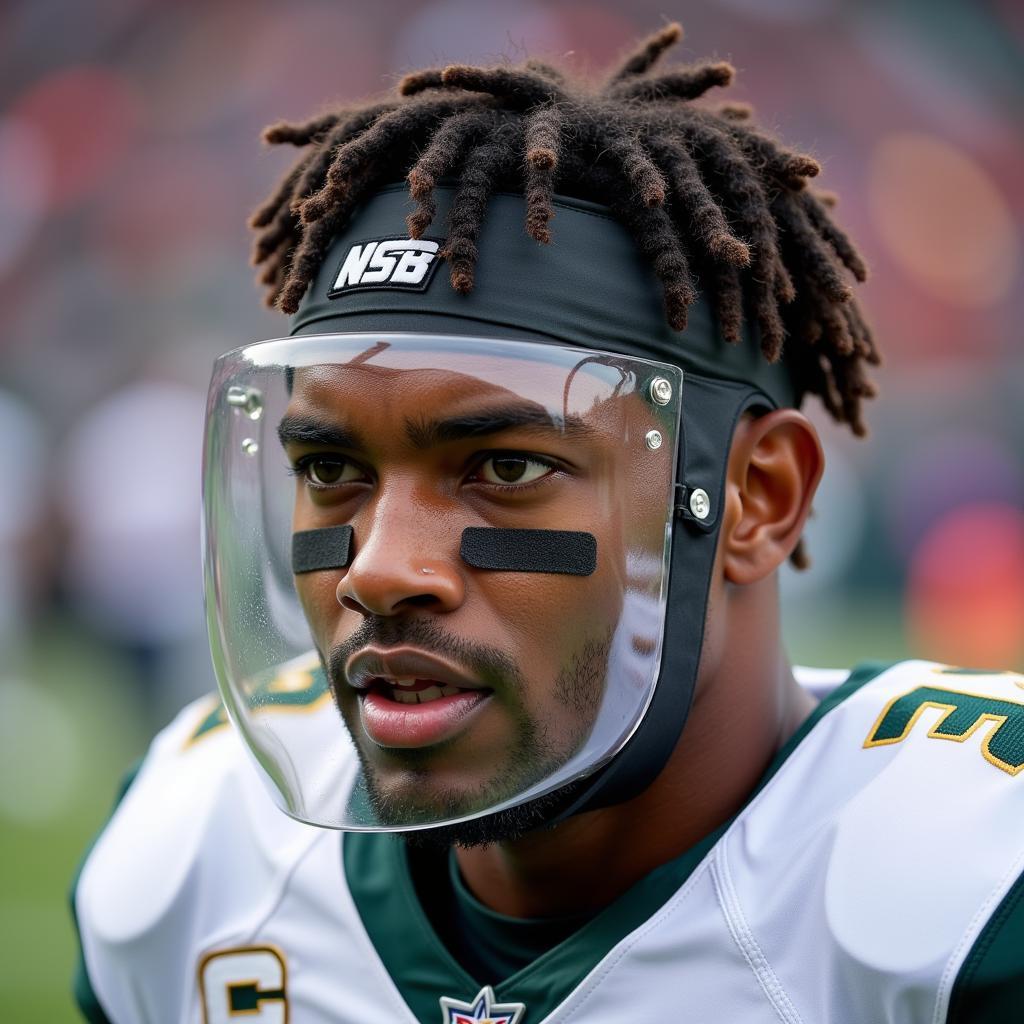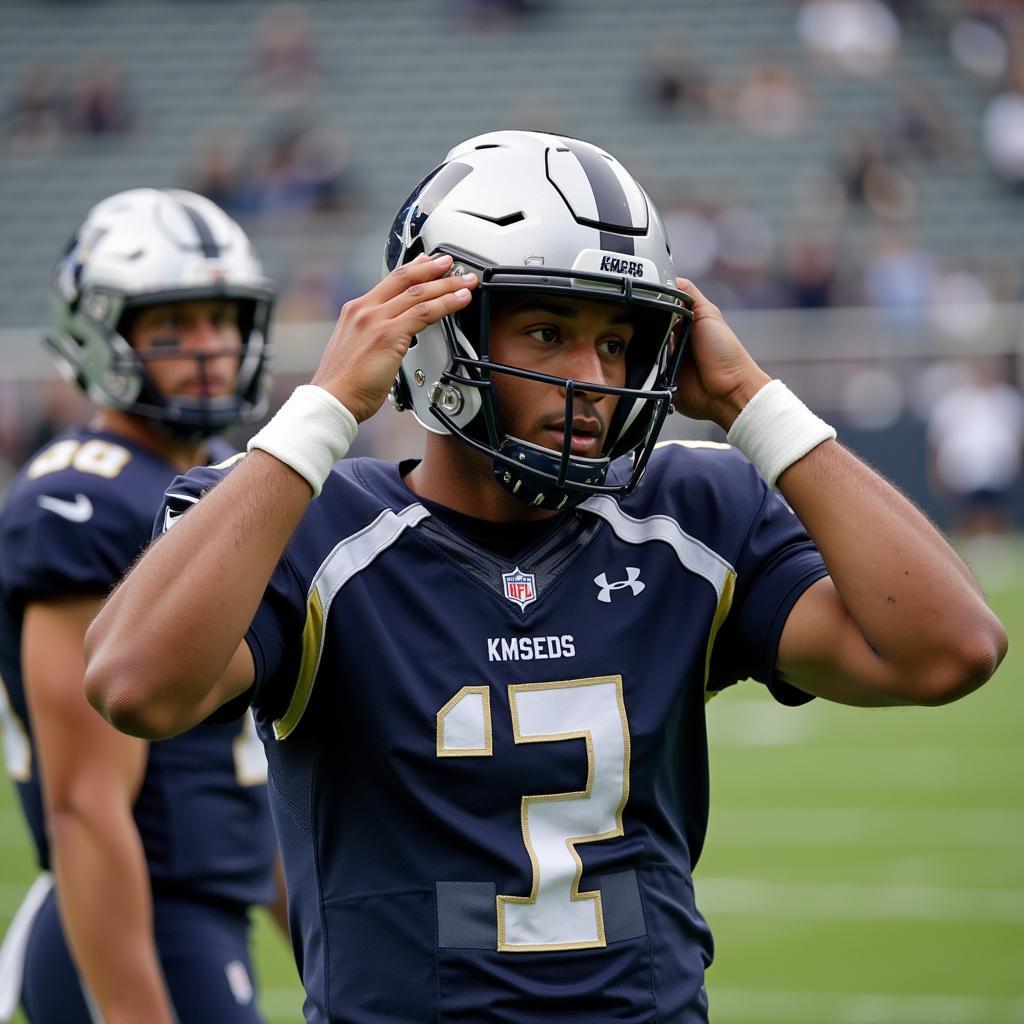Football Players Who Wear Masks: Protection or Performance Enhancement?
October 21, 2024In the high-stakes world of professional football, players are constantly seeking ways to gain an edge, whether through rigorous training, dietary adjustments, or even technological advancements. While not as common as specialized boots or GPS trackers, face masks have become an increasingly familiar sight on the pitch. But what exactly motivates these athletes to don a mask? Is it purely for protection, or are there performance benefits at play?
Why Do Football Players Wear Masks?
The most common reason for footballers to wear masks is protection. Facial injuries are an unfortunate reality of the sport, with tackles, collisions, and errant elbows posing constant threats. A well-designed mask can provide crucial safeguarding for players recovering from:
- Nasal fractures: Perhaps the most prevalent facial injury in football, a broken nose can sideline a player for weeks. A mask can provide stability and support to the healing bone, allowing for a quicker return to action.
- Cheekbone injuries: A direct blow to the cheekbone can be excruciating and require surgery. A mask can shield the vulnerable area from further impact, offering peace of mind and facilitating recovery.
- Eye socket fractures: A severe injury with potentially long-term consequences, an eye socket fracture necessitates maximum protection. A specialized mask with enhanced eye shielding can be crucial for a safe return to play.
 Footballer wearing a protective mask
Footballer wearing a protective mask
However, beyond protection, some athletes believe that masks can offer performance advantages:
- Psychological boost: Donning a mask can instill a sense of invincibility and fearlessness, allowing players to attack challenges head-on without hesitation. This psychological edge can be particularly valuable in high-pressure situations.
- Improved focus: The physical presence of a mask can serve as a constant reminder to stay focused on the game, minimizing distractions and enhancing concentration. This heightened awareness can be crucial for making split-second decisions on the pitch.
Are There Drawbacks to Wearing a Mask?
While masks can provide benefits, there are potential downsides to consider:
- Communication hindrance: Masks can muffle communication on the field, potentially impacting team coordination and strategy. This can be particularly problematic for players in key leadership roles.
- Limited vision: Depending on the design, masks can restrict peripheral vision, making it harder to track opponents and anticipate plays. This limited field of view could put a player at a disadvantage.
- Discomfort and irritation: Masks can be uncomfortable, especially in hot and humid conditions. Sweat and moisture build-up can cause irritation, and the constant pressure on the face can be distracting.
 Footballer adjusting his mask
Footballer adjusting his mask
The Future of Masks in Football
As technology advances, we can expect to see more innovative mask designs that prioritize both protection and comfort. Lighter materials, improved ventilation, and customized fits will minimize drawbacks and enhance player experience.
While the primary function of masks in football will likely remain protection, the potential for performance enhancement is an intriguing area for further exploration. Perhaps, in the future, we’ll see masks evolve from a necessity for some to a strategic advantage for many.
FAQ
1. Do all players with facial injuries wear masks?
Not necessarily. The decision to wear a mask depends on the severity of the injury, the player’s position, and personal preference. Some injuries may heal sufficiently without requiring a mask, while others may only need it for a short period.
2. How are football masks customized for individual players?
Medical professionals typically create custom-fitted masks using molds of the player’s face. This ensures a secure and comfortable fit that provides optimal protection without hindering performance.
3. Are there specific rules governing the use of masks in football?
Yes, football governing bodies have regulations regarding mask materials and designs to ensure player safety. Masks must be made from non-hazardous materials and not pose a risk to other players.
4. Can wearing a mask impact a player’s breathing?
While masks can feel slightly restrictive initially, modern designs prioritize ventilation to minimize any potential impact on breathing. Players generally adapt to wearing masks without significant respiratory issues.
5. Do professional footballers endorse specific mask brands?
Yes, some prominent players have endorsement deals with mask manufacturers. These collaborations often lead to advancements in mask technology and design, benefiting players at all levels.
Need More Information?
For any inquiries or assistance, please contact us:
Phone Number: 0396443476
Email: [email protected]
Address: 23 Thang 3, Dak Nia, Gia Nghia, Dak Nong, Vietnam.
Our dedicated customer support team is available 24/7 to assist you.